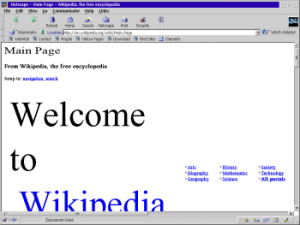In 2005 I wrote a vocal melody and lyrics on top of a blissy keyboard instrumental by Slavagoh. I really liked the repeating three chord progression and had planned to incorporate his recording into the French Horns demo, but decided to keep it minimal.
I kinda had always regretted that, so five years later I managed to glue those recordings together:
[audio:http://mrclay.org/mp3s/Surest%20Things_untitled%20bliss.mp3|titles=Surest Things – The French Horns & Slavagoh]
 Both recordings were almost the same tempo, but the Slavagoh recording was about a semitone lower in key. After nudging his recording into the same key and time-stretching (thankfully both were recorded to drum machines), there were still some beat mismatches on the ends to deal with. Eventually I ended up with three instances of “untitled bliss” spliced in because I really liked how its ending had this smoother sound and how that part mixed with earlier parts of the track.
Both recordings were almost the same tempo, but the Slavagoh recording was about a semitone lower in key. After nudging his recording into the same key and time-stretching (thankfully both were recorded to drum machines), there were still some beat mismatches on the ends to deal with. Eventually I ended up with three instances of “untitled bliss” spliced in because I really liked how its ending had this smoother sound and how that part mixed with earlier parts of the track.
My demo was also bass-heavy, too dark in the vocal range, and overly punchy on some beats, so I did a bunch of surgical volume cuts and EQ on my track before mixing.
Wins: Extended the end of the track a bit by having the “guitar solo” twice. Worked hard on the fades at the beginning and end so the track starts and finishes with just the Slavagoh track.
Losses: Not remixing my recording from scratch to remove that annoying click track. Not using some of the violin tracks laying around from an older mix session. Not saving the session used to master it.
If you’re not patient, it’s easy to mix down and then immediately start mastering the resulting WAV file without keeping track of the changes you’re making. When you do this, there’s no way to duplicate that process in case you need to change something in the mixing session. I kinda did this on purpose though; after 5 years of sitting around I wanted to get this recording to “good enough” and move on. There’s a lot more piled up that needs working on.
 Netscape Navigator 4 was—very briefly—the best browser available, then the best available on certain platforms, then finally for the longest time a
Netscape Navigator 4 was—very briefly—the best browser available, then the best available on certain platforms, then finally for the longest time a 